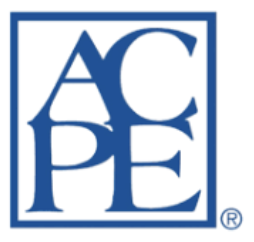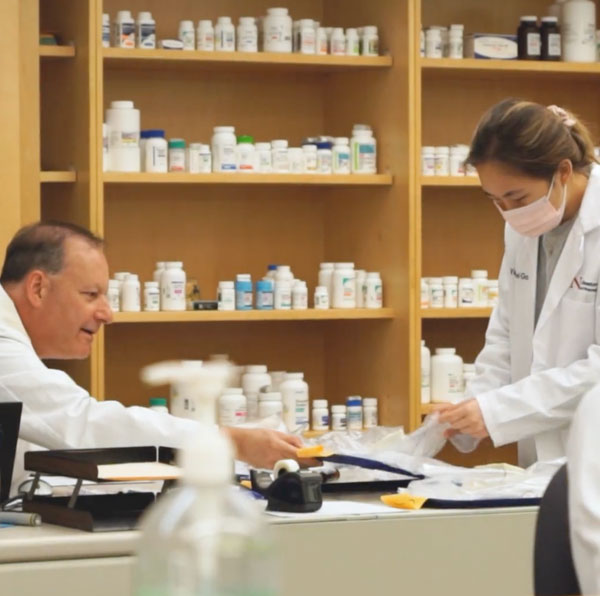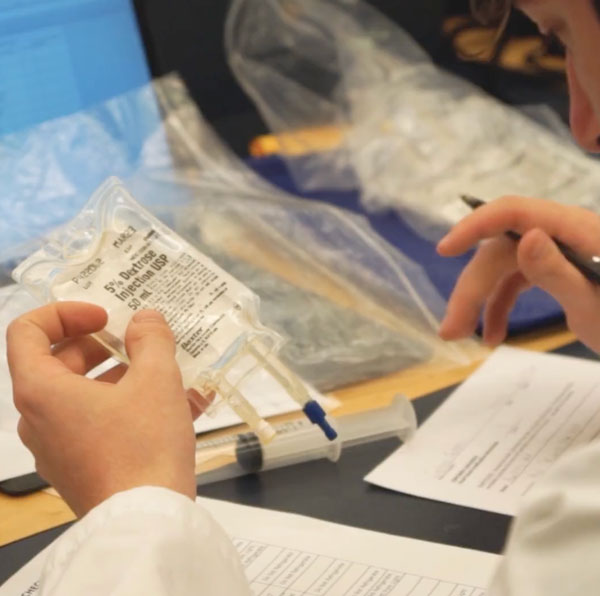
Debra Copeland
PharmD, RPh, FNAP
Associate Clinical Professor; Asst. Dean, Office of Experiential and Continuing Professional Education Pharmacy and Health Systems Science
YOU ARE BOUVÉ

Check out our upcoming events.

Northeastern University Bouvé College of Health Sciences School of Pharmacy is accredited by the Accreditation Council for Pharmacy Education as a provider of continuing pharmacy education.
We deliver live, online, and enduring programs for pharmacists. Co-sponsors of our programs include the pharmaceutical industry, pharmacy professional organizations, medical communications companies, other colleges of pharmacy and healthcare providers.

Northeastern University, Bouvé College of Health Sciences, School of Pharmacy and Pharmaceutical Sciences is accredited by the Accreditation Council for Pharmacy Education as a provider of Continuing Pharmacy Education.

PharmD, RPh, FNAP
Associate Clinical Professor; Asst. Dean, Office of Experiential and Continuing Professional Education Pharmacy and Health Systems Science

PhD, GCMM
Director of Professional Programs School of Pharmacy and Pharmaceutical Sciences
In the ever changing-world of information and advancements in healthcare, our mission is to support the enhancement of continuing quality education for pharmacists and pharmacy professionals through accrediting activities that meet re-licensure and provide up-to-date training towards enhancing patient care.
Our goals are to:


Effective for the renewal period beginning January 1, 2015, a registrant seeking renewal of a personal registration must complete a minimum of 20 contact hours of continuing education each calendar year of the two-year renewal cycle; total 40 contact hours every two years. All personal registrations shall expire on December 31st of each even-numbered year.
All registrants must complete:
The five (5) sterile or three (3) complex non-sterile compounding CE hours count towards the twenty (20) CE hours required each calendar year and may be completed as home study or in live format. The compounding CE credits must be completed by December 31st of each calendar year.
Contact hours of continuing education may not be carried over from one calendar year to another.
ACPE stands for the Accreditation Council for Pharmacy Education. ACPE is the national accrediting agency for pharmacy continuing education. ACPE assures the quality of continuing pharmaceutical education programs by evaluating the providers of CE and by monitoring the quality of their educational activities. ACPE also provides a basis for uniform acceptance of CE credits among the states.
NABP stand for the National Association of Boards of Pharmacy.
CPE Monitor stands for Continuing Education Pharmacy Monitor which is the national system which tracks and records Continuing Pharmacy Education credits.
To determine if a program is accredited by ACPE, look for the ACPE logo and a fourteen digit number on information brochures regarding the program.
Statements of credit are available on participant’s individual CPE Monitor account. Go to www.nabp.net to create or access an account.
The Accreditation Council for Pharmacy Education (ACPE) states that:
“Certification is the process by which a non-governmental agency, such as a professional association, grants recognition, following assessment, to an individual who has met certain predetermined qualifications specified by that organization.”
Examples of certifications in pharmacy include:
In contrast, “certificate programs in pharmacy are structured and systematic post-graduate continuing education experiences for pharmacists that are generally smaller in magnitude and shorter in time than degree programs, and that impart knowledge, skills, attitudes and performance behaviors designed to meet specific pharmacy practice objectives.”
“The successful completion of one or more Certificate Programs in Pharmacy may be among the requirements for certification or re-certification, as determined by the organization granting certification. “
Reference: The Accreditation Council for Pharmacy Education. Standards and Quality Assurance Procedures for ACPE-Approved Providers of Continuing Pharmaceutical Education Offering Certificate Programs in Pharmacy. Chicago, 1999.
Statements of credit are available on participant’s individual CPE Monitor account.
Create or access your account
It depends on the program. Some of our annual conferences are organized as two separate days. If you can register for one day, without the other, you could receive continuing education for just one day of programming. But, in general, you cannot receive partial credit (e.g. 2 hours of a 4 hour program) for our live coursework. You must attend the course in its entirety.
Mediated contact hours are those obtained outside of the live setting. Examples include online activities and continuing education activities found in pharmacy magazines.
All incorrectly answered questions will be displayed.
Review all the program material and focus on those questions that you marked incorrectly. You may take the test again at no additional charge until you pass.
Although the majority of our programs are accepted for continuing education credit in all states, it is ultimately your responsibility to find out whether our programs will be acceptable for continuing education credits in your state. If you have questions, we recommend that you contact your state board.
You are responsible for all interactions with your state board and will need to share any information they require yourself.



Any medications or treatment methods suggested in this CE activity should not be used by the practitioner without evaluation of their patient’s condition(s) and possible contraindication(s) or danger(s) of use of any specific medication. This activity may include discussions of products or devices that are not currently approved for use by the Food and Drug Administration (FDA).
Northeastern University Bouvé College of Health Sciences School of Pharmacy, and the activity’s faculty do not endorse the use of any product in a manner that is not approved by the FDA. The author, sponsor, and provider of this continuing education program have made all reasonable efforts to ensure that information contained herein is accurate in accordance with the latest available scientific knowledge at the time of accreditation of this continuing education program.
Information regarding drugs (e.g., their administration, dosages, contraindications, adverse reactions, interactions, special warnings, precautions) and drug delivery systems is subject to change, however, and the reader is advised to check the manufacturer’s package insert for information concerning recommended dosage and potential problems or cautions prior to dispensing or administering the drug or using the drug delivery systems.
The opinions expressed in the educational activity are those of the faculty and do not necessarily represent the views of Northeastern University Bouve College of Health Sciences School of Pharmacy. Participants have an implied responsibility to use the newly acquired information to enhance patient outcomes and their own professional development.
The information presented in this activity is not meant to serve as a guideline for patient management. Any procedures, medications, or other courses of diagnosis or treatment discussed or suggested in this activity should not be used by clinicians without evaluation of their patient’s conditions and possible contraindications on dangers in use, review of any applicable manufacturer’s product information, and comparison with recommendations of other authorities.
The authors, sponsors, and publisher of these continuing education programs have made all reasonable efforts to assure that all information contained herein is accurate in accordance with the latest available scientific knowledge at the time of acceptance for publication. However, because information regarding drugs (their administration, dosages, contraindications, adverse reactions, interactions, special warnings, precautions, etc.) is subject to constant change, the reader is advised to check the manufacturer’s package insert for information concerning recommended dosages and potential problems and cautions prior to dispensing or administering the drug.
Special precautions should be taken when a drug is new, or highly toxic, or is unfamiliar to the dispenser or administrant. These educational activities may contain discussion of published and/or investigational uses of agents that are not approved by the FDA. Neither the publisher nor sponsors promotes the use of any agent outside of approved labeling. Statements made in these monographs have not been evaluated by the FDA. Nutritional products discussed are not intended for the diagnosis, treatment, cure, or prevention of any disease.
For information on Northeastern University’s Policy on Privacy and Confidentiality as it relates to continuing education activities provided on the internet please read the Appropriate Use Policy.